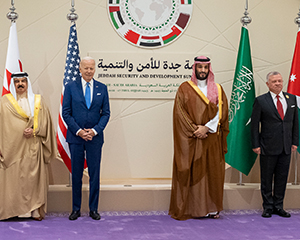More than thirty years after the supposed “end of history” and the third wave of democratization, the world is once again characterized by a greater diversity of political regimes. The (re-)emergence of powerful authoritarian states like China and Russia and the trend of backsliding in seemingly consolidated democracies have created a world that is more pluralistic and multipolar. States with different types of political regimes increasingly view each other as competitors. All sides seek to prove the superiority of their respective political and economic systems and to win the allegiance of third countries.
Current political debates that assume regime competition are characterized by some questionable assumptions. The newly founded research group on regime competition, headed by Pascal Abb and Irene Weipert-Fenner, critically questions these assumptions: Is there even a clear dividing line between democratic and authoritarian camps? Is there a connection between behavior and regime type of states? And must relations between differently constituted states inevitably be antagonistic?
To develop a nuanced understanding of these dynamics, the new research group brings together country and disciplinary expertise from across the institute. It is also developing empirical studies of the political dynamics of regime competition to show how the global order and the foreign and domestic policies of third countries are affected by varieties of (perceived) regime competition. The results are not only of academic importance, but also identify and provide recommendations on how German foreign and development policy can deal with increasing regime diversity.
